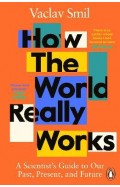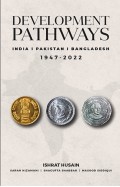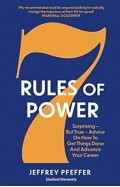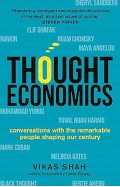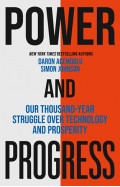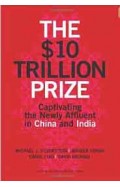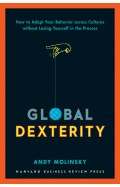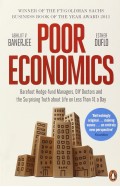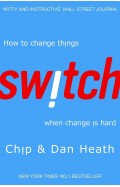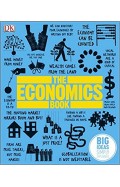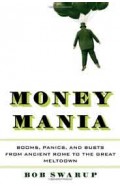- Home
- Urdu Books
- Children's Urdu Books
- Business & Management
- Business & Economics
- The Road to Freedom - Economics and the Good Society
The Road to Freedom - Economics and the Good Society
By: Joseph E. Stiglitz
-
Rs 5,665.50
- Rs 6,295.00
- 10%
You save Rs 629.50.
Due to constant currency fluctuation, prices are subject to change with or without notice.
Despite its manifest failures, the narrative of neoliberalism retains its grip on the public mind and the policies of governments all over the world. By this narrative, less regulation and more ‘animal spirits’ capitalism produces not only greater prosperity, but more freedom for individuals in society - and is therefore morally better.
But, in The Road to Freedom Stiglitz asks, whose freedom are we – should we be – thinking about? What happens when one person’s freedom comes at the expense of another’s? Should the freedoms of corporations be allowed to impinge upon those of individuals in the ways they now do?
Taking on giants of neoliberalism such as Hayek and Friedman and examining how public opinion is formed, Stiglitz reclaims the language of freedom from the right to show that far from ‘free’ – unregulated – markets promoting growth and enterprise, they in fact reduce it, lessening economic opportunities for majorities and siphoning wealth from the many to the few – both individuals and countries. He shows how neoliberal economics and its implied moral system have impacted our legal and social freedoms in surprising ways, from property and intellectual rights, to education and social media.
Stiglitz’s eye, as always, is on how we might create the true human flourishing which should be the great aim of our economic and social system, and offers an alternative to that prevailing today. The Road to Freedom offers a powerful re-evaluation of democracy, economics and what constitutes a good society―and provides a roadmap of how we might achieve it.
Despite its manifest failures, the narrative of neoliberalism retains its grip on the public mind and the policies of governments all over the world. By this narrative, less regulation and more ‘animal spirits’ capitalism produces not only greater prosperity, but more freedom for individuals in society - and is therefore morally better.
But, in The Road to Freedom Stiglitz asks, whose freedom are we – should we be – thinking about? What happens when one person’s freedom comes at the expense of another’s? Should the freedoms of corporations be allowed to impinge upon those of individuals in the ways they now do?
Taking on giants of neoliberalism such as Hayek and Friedman and examining how public opinion is formed, Stiglitz reclaims the language of freedom from the right to show that far from ‘free’ – unregulated – markets promoting growth and enterprise, they in fact reduce it, lessening economic opportunities for majorities and siphoning wealth from the many to the few – both individuals and countries. He shows how neoliberal economics and its implied moral system have impacted our legal and social freedoms in surprising ways, from property and intellectual rights, to education and social media.
Stiglitz’s eye, as always, is on how we might create the true human flourishing which should be the great aim of our economic and social system, and offers an alternative to that prevailing today. The Road to Freedom offers a powerful re-evaluation of democracy, economics and what constitutes a good society―and provides a roadmap of how we might achieve it.
The EuroAnd its Threat to the Future of Europe
By: Joseph E. Stiglitz
Rs 1,525.50 Rs 1,695.00 Ex Tax :Rs 1,525.50
People, Power, and Profits: Progressive Capitalism for an Age of Discontent
By: Joseph E. Stiglitz
Rs 2,605.50 Rs 2,895.00 Ex Tax :Rs 2,605.50
Globalization and Its Discontents Revisited: Anti-Globalization in the Era of Trump - Paperback
By: Joseph E. Stiglitz
Rs 2,965.50 Rs 3,295.00 Ex Tax :Rs 2,965.50
People, Power, and Profits: Progressive Capitalism for an Age of Discontent - Paperback
By: Joseph E. Stiglitz
Rs 2,515.50 Rs 2,795.00 Ex Tax :Rs 2,515.50
The Euro: And its Threat to the Future of Europe - Paperback
By: Joseph E. Stiglitz
Rs 1,780.75 Rs 2,095.00 Ex Tax :Rs 1,780.75
The Road to Freedom - Economics and the Good Society
By: Joseph E. Stiglitz
Rs 5,665.50 Rs 6,295.00 Ex Tax :Rs 5,665.50
Zubin Mehta: A Musical Journey (An Authorized Biography)
By: VOID - Bakhtiar K. Dadabhoy
Rs 892.50 Rs 1,050.00 Ex Tax :Rs 892.50
How the World Really Works - The Science Behind How We Got Here and Where We're Going
By: Vaclav Smil
Rs 2,515.50 Rs 2,795.00 Ex Tax :Rs 2,515.50
Development Pathways
By: Dr. Ishrat Husain, Sarah Nizamani, Shagufta Shabbar and Masood Siddiqui
Rs 2,970.75 Rs 3,495.00 Ex Tax :Rs 2,970.75
Thought Economics: Conversations with the Remarkable People Shaping Our Century
By: Vikas Shah
Rs 2,695.50 Rs 2,995.00 Ex Tax :Rs 2,695.50
Power and Progress: Our Thousand-Year Struggle Over Technology and Prosperity
By: Simon Johnson
Rs 4,315.50 Rs 4,795.00 Ex Tax :Rs 4,315.50
The 10 Trillion Prize Captivating thely Affluent in China and India
By: Michael J. Silverstein
Rs 1,865.75 Rs 2,195.00 Ex Tax :Rs 1,865.75
Global Dexterity: How to Adapt Your Behavior Across Cultures without Losing Yourself in the Process
By: Andy Molinsky
Rs 2,065.50 Rs 2,295.00 Ex Tax :Rs 2,065.50
Poor Economics: The Surprising Truth about Life on Less Than $1 a Day
By: Abhijit Banerjee
Rs 2,515.50 Rs 2,795.00 Ex Tax :Rs 2,515.50
Switch: How to change things when change is hard - (PB)
By: Dan Heath
Rs 1,255.50 Rs 1,395.00 Ex Tax :Rs 1,255.50
The Great Degeneration: How Institutions Decay and Economies Die
By: Niall Ferguson
Rs 2,035.75 Rs 2,395.00 Ex Tax :Rs 2,035.75
Email Revolution : Unleashing The Power To Connect
By: V. A. Shiva Ayyadurai
Rs 977.50 Rs 1,150.00 Ex Tax :Rs 977.50
Money Mania Booms Panics and Busts from Ancient Rome to the Great Meltdown
By: Bob Swarup
Rs 2,252.50 Rs 2,650.00 Ex Tax :Rs 2,252.50
How the World Really Works - The Science Behind How We Got Here and Where We're Going
By: Vaclav Smil
Rs 2,515.50 Rs 2,795.00 Ex Tax :Rs 2,515.50
Development Pathways
By: Dr. Ishrat Husain, Sarah Nizamani, Shagufta Shabbar and Masood Siddiqui
Rs 2,970.75 Rs 3,495.00 Ex Tax :Rs 2,970.75
Thought Economics: Conversations with the Remarkable People Shaping Our Century
By: Vikas Shah
Rs 2,695.50 Rs 2,995.00 Ex Tax :Rs 2,695.50
Power and Progress: Our Thousand-Year Struggle Over Technology and Prosperity
By: Simon Johnson
Rs 4,315.50 Rs 4,795.00 Ex Tax :Rs 4,315.50
No recently viewed books available at the moment.
Zubin Mehta: A Musical Journey (An Authorized Biography)
By: VOID - Bakhtiar K. Dadabhoy
Rs 892.50 Rs 1,050.00 Ex Tax :Rs 892.50
The EuroAnd its Threat to the Future of Europe
By: Joseph E. Stiglitz
Rs 1,525.50 Rs 1,695.00 Ex Tax :Rs 1,525.50
People, Power, and Profits: Progressive Capitalism for an Age of Discontent
By: Joseph E. Stiglitz
Rs 2,605.50 Rs 2,895.00 Ex Tax :Rs 2,605.50
Globalization and Its Discontents Revisited: Anti-Globalization in the Era of Trump - Paperback
By: Joseph E. Stiglitz
Rs 2,965.50 Rs 3,295.00 Ex Tax :Rs 2,965.50
People, Power, and Profits: Progressive Capitalism for an Age of Discontent - Paperback
By: Joseph E. Stiglitz
Rs 2,515.50 Rs 2,795.00 Ex Tax :Rs 2,515.50
The Euro: And its Threat to the Future of Europe - Paperback
By: Joseph E. Stiglitz
Rs 1,780.75 Rs 2,095.00 Ex Tax :Rs 1,780.75
The Road to Freedom - Economics and the Good Society
By: Joseph E. Stiglitz
Rs 5,665.50 Rs 6,295.00 Ex Tax :Rs 5,665.50
How the World Really Works - The Science Behind How We Got Here and Where We're Going
By: Vaclav Smil
Rs 2,515.50 Rs 2,795.00 Ex Tax :Rs 2,515.50
Development Pathways
By: Dr. Ishrat Husain, Sarah Nizamani, Shagufta Shabbar and Masood Siddiqui
Rs 2,970.75 Rs 3,495.00 Ex Tax :Rs 2,970.75
Thought Economics: Conversations with the Remarkable People Shaping Our Century
By: Vikas Shah
Rs 2,695.50 Rs 2,995.00 Ex Tax :Rs 2,695.50
Power and Progress: Our Thousand-Year Struggle Over Technology and Prosperity
By: Simon Johnson
Rs 4,315.50 Rs 4,795.00 Ex Tax :Rs 4,315.50













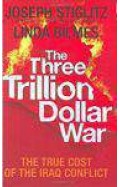
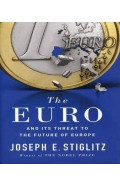
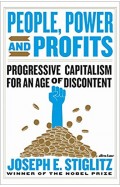
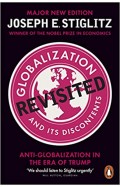
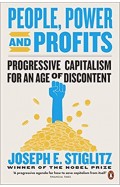
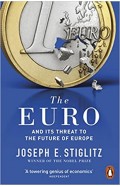

-120x187.jpg?q6)





